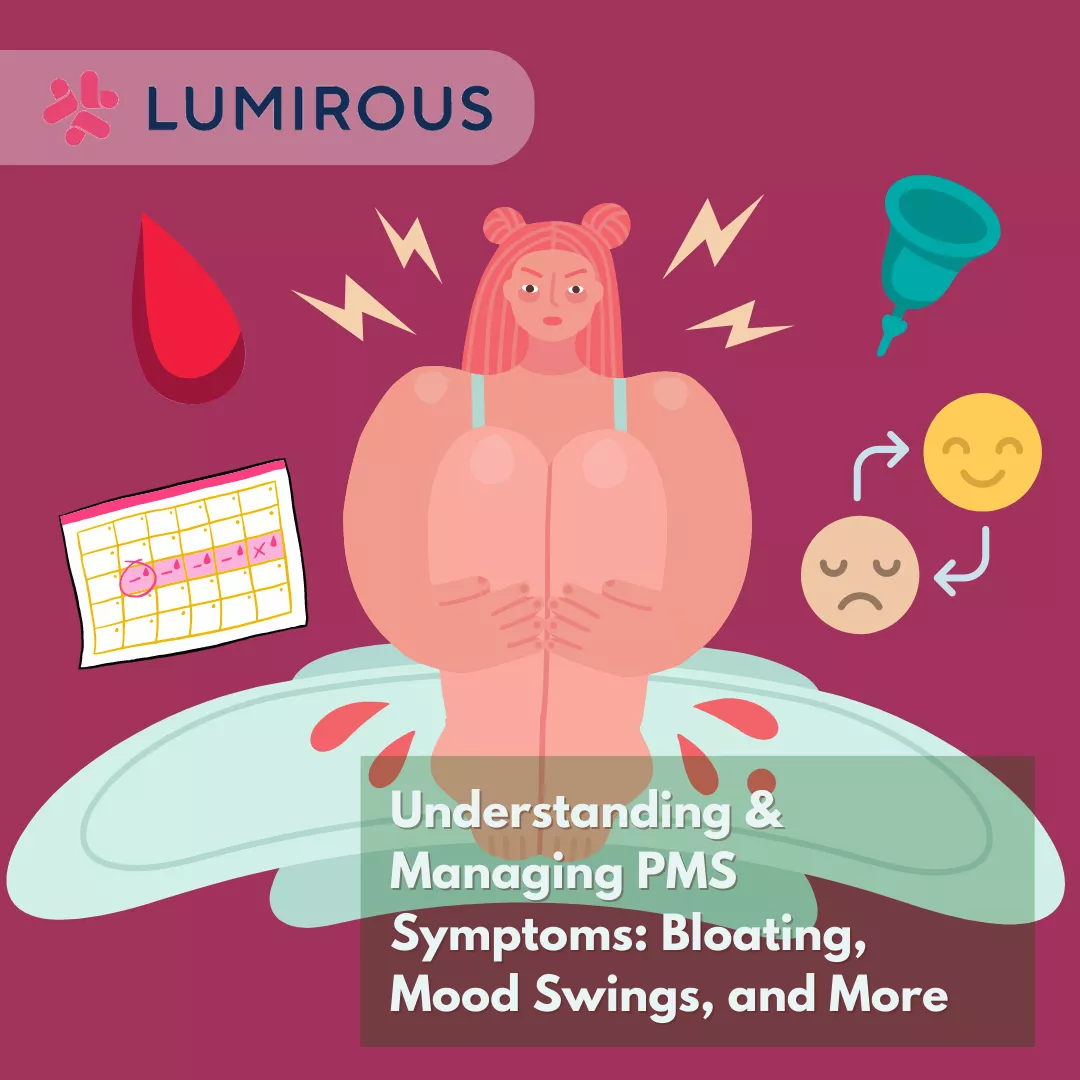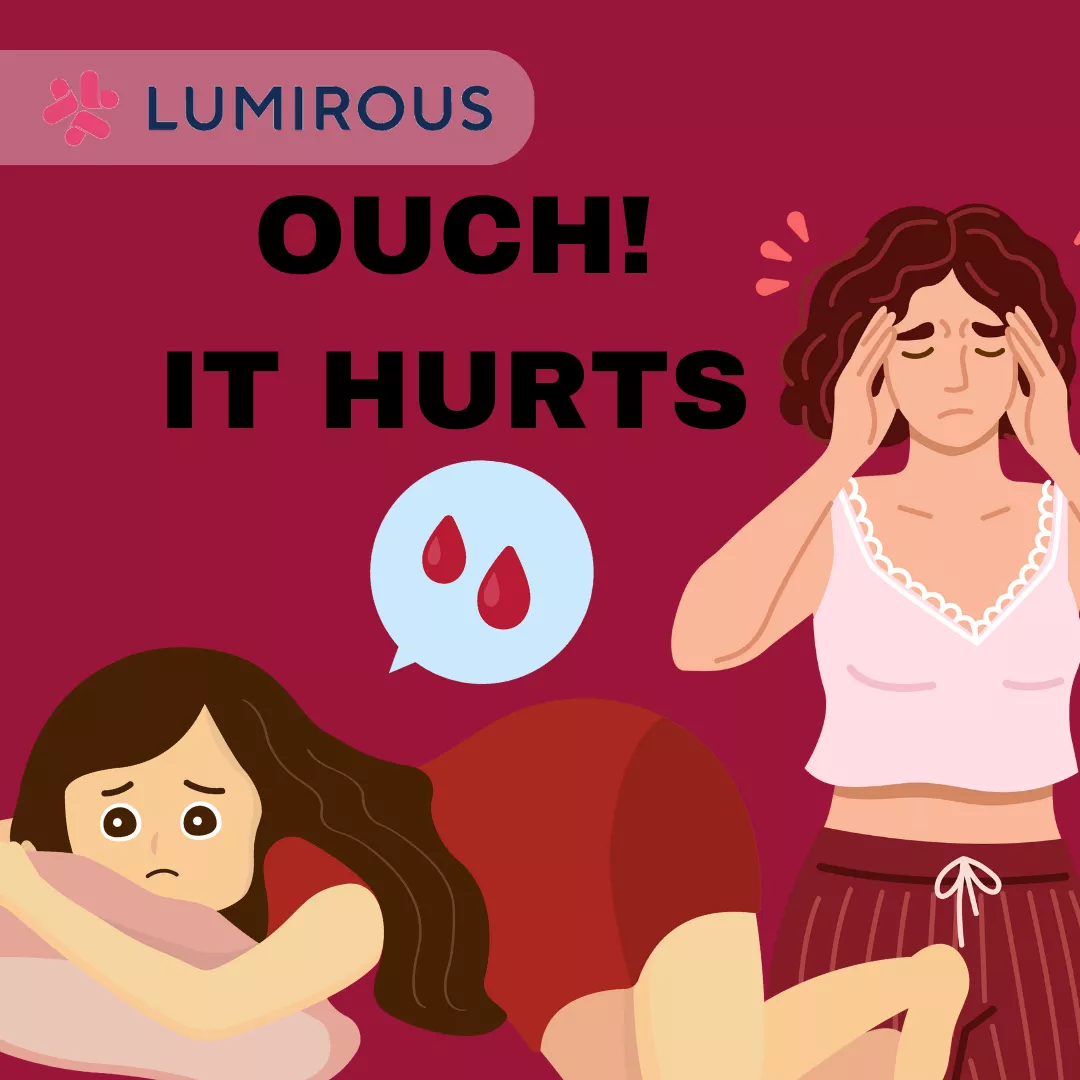Table of Contents

Premenstrual Syndrome, commonly known as PMS, is a collection of physical, emotional, and behavioral symptoms that occur in many women in the days leading up to their menstrual period. While the specific symptoms and severity can vary from woman to woman, PMS affects a significant number of women worldwide and can have a significant impact on their overall well-being. In this article, we will explore common PMS symptoms, their causes, and some strategies for managing them effectively.
Physical Symptoms

a. Abdominal discomfort: Many women experience bloating, cramps, and general discomfort in the lower abdomen during PMS. These symptoms are caused by hormonal fluctuations and can range from mild to severe.
b. Breast tenderness: Swollen and tender breasts are a common symptom of PMS. This discomfort is caused by hormonal changes that lead to fluid retention and increased sensitivity in breast tissue.
c. Fatigue: Feeling tired and low on energy is another common complaint during PMS. Hormonal changes can disrupt sleep patterns and leave women feeling fatigued and drained.
d. Headaches: Frequent headaches or migraines can occur during PMS. These headaches are often triggered by hormonal imbalances and can range from mild to severe.
Emotional and Behavioral Symptoms

a. Mood swings: One of the most well-known symptoms of PMS is mood swings. Women may experience irritability, moodiness, anxiety, or even depression during this time. These emotional changes are closely linked to hormonal fluctuations and can be challenging to manage.
b. Food cravings and appetite changes: PMS can lead to intense cravings, particularly for sugary or salty foods. Some women may also experience changes in appetite, either increased or decreased, during this time.
c. Poor concentration and memory: Many women report difficulties with concentration and memory during PMS. These cognitive symptoms can be frustrating and may interfere with daily activities.
d.Changes in libido: Some women may experience a decrease in sexual desire or changes in their sexual response during PMS. Hormonal fluctuations and emotional changes can contribute to these variations in libido.
Causes of PMS
The exact causes of PMS are not fully understood, but hormonal fluctuations, specifically change in estrogen and progesterone levels, are believed to play a significant role. Other factors that can contribute to the severity of PMS symptoms include stress, poor diet, lack of exercise, and underlying mental health conditions such as depression or anxiety.
Managing PMS Symptoms
While it may not be possible to completely eliminate PMS symptoms, there are several strategies that can help manage and alleviate their impact:

a. Lifestyle changes: Regular exercise, a balanced diet, and sufficient sleep can all help reduce the severity of PMS symptoms. Engaging in stress-reducing activities like yoga, meditation, or deep breathing exercises can also be beneficial.
b. Dietary adjustments: Reducing the consumption of caffeine, salt, and processed foods may help alleviate symptoms like bloating and breast tenderness. Adding more whole grains, fruits, and vegetables to your diet can provide essential nutrients and support overall well-being.
c. Over-the-counter medications: Nonsteroidal anti-inflammatory drugs (NSAIDs), such as ibuprofen, can help alleviate pain, cramps, and headaches associated with PMS. However, it is important to consult with a healthcare professional before starting any medication.
d. Hormonal birth control: Some women find relief from PMS symptoms by using hormonal birth control methods, such as oral contraceptives or patches. These methods can help regulate hormonal fluctuations and reduce the severity of symptoms.
e. Emotional support: Seeking emotional support from friends, family, or mental health professionals can be crucial in managing the emotional symptoms of PMS.
Make sure to stick around for more women wellness topic such as PMS and Period Cramps over here at LUMIROUS. Visit our website now or contact us for more information.
References
- Smith, J. D., Johnson, A. B., & Williams, K. L. (2021). Understanding and managing premenstrual syndrome symptoms: A comprehensive review. Journal of Women's Health, 10(2), 45-62.
- Mayo Clinic. (2022).Premenstrual syndrome (PMS) - Symptoms and causes. https://www.mayoclinic.org/diseases-conditions/premenstrual-syndrome/diagnosis-treatment/drc-20376787
